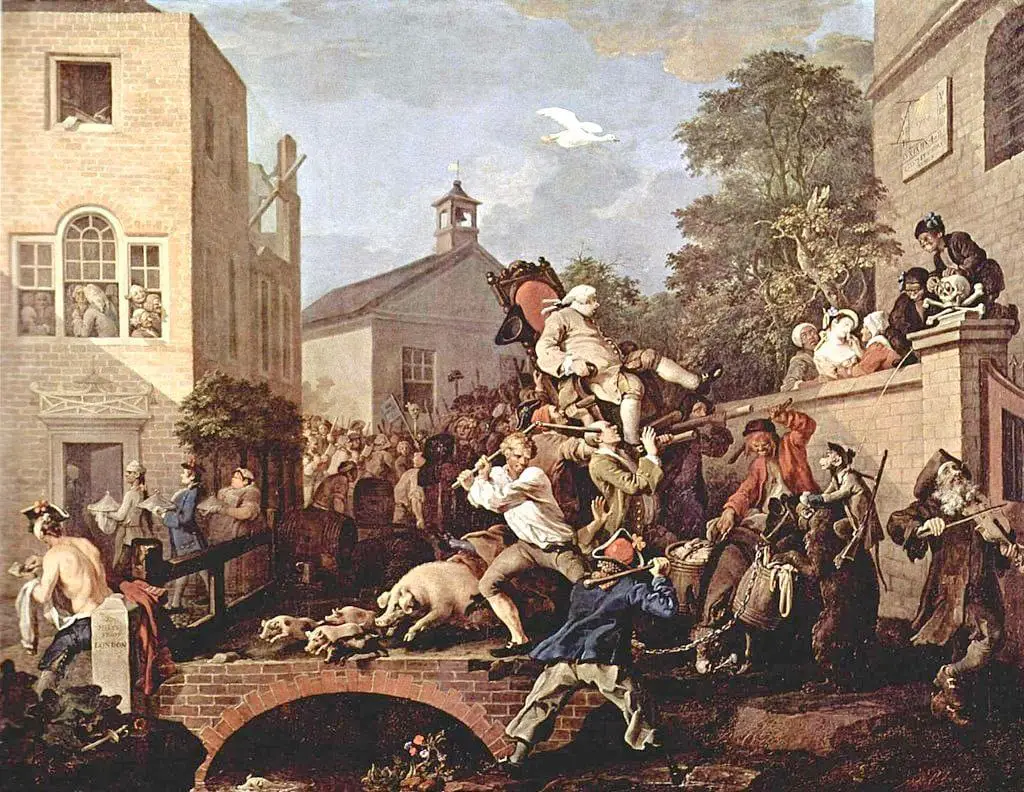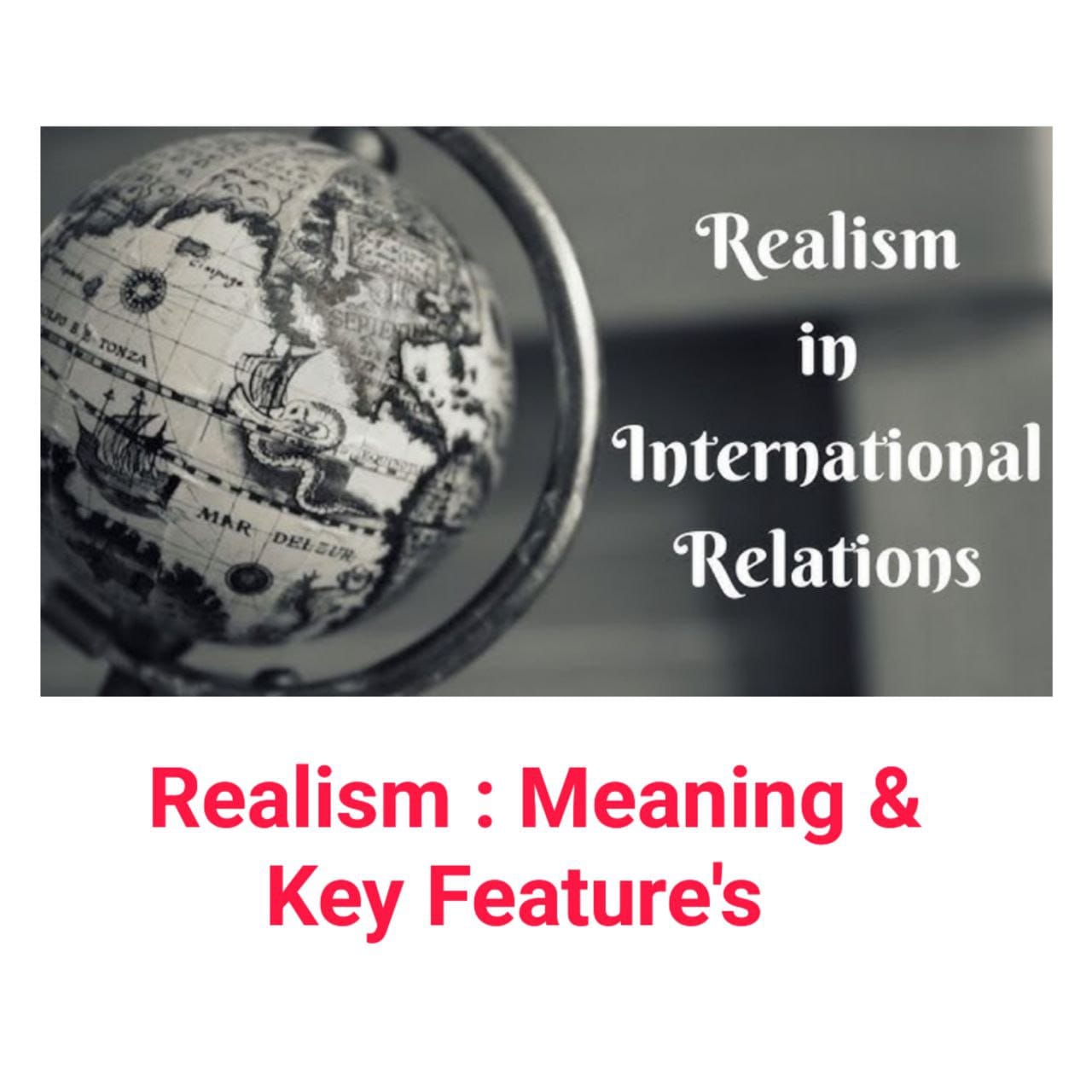Meaning of Realism in International Relations
Realism is a dominant theory in international relations that views the international system as anarchic, meaning there is no overarching authority above states. According to realism, states are the primary actors in international politics, and their main concern is survival and the pursuit of power. Realists believe that states exist in a constant state of competition and conflict, where the use of force and the pursuit of national interests dominate.
The fundamental premise of realism is that the international system is shaped by the desire for power, and cooperation between states is often fragile and short-lived due to the self-interest of states. Realists are generally skeptical of international institutions and alliances, viewing them as temporary or secondary to the primary concerns of power and security.

Key Features of Realism
- Anarchy in the International System:
- Realism assumes that the international system is anarchic, meaning there is no central authority or government to enforce rules or maintain order. Each state must fend for itself in this environment, as there is no higher power to guarantee their security.
- The lack of a global sovereign leads to a self-help system where states prioritize their own survival and interests over collective goals.
- States as Main Actors:
- Realists view states as the most important and powerful actors in international relations. Other entities, such as international organizations or non-state actors, play a secondary role.
- Each state acts as a unitary and rational actor, meaning it makes decisions based on a coherent pursuit of national interests, primarily focusing on power and security.
- Power and Security as Central Concerns:
- Realism asserts that the primary goal of states is to acquire power and ensure their security in an uncertain and dangerous world. The pursuit of power is essential because it guarantees survival in a competitive international environment.
- Power is often understood in terms of military strength, but economic and political influence are also key aspects of state power.
- Self-Help System:
- Realists believe in a self-help system, where states cannot rely on others for their security. Each state must take care of its own survival and make decisions based on its own interests rather than expecting help from others.
- Alliances and agreements are seen as temporary and conditional, formed only when they serve the state’s self-interest, and can easily be broken if circumstances change.
- Pessimistic View of Human Nature:
- Realism holds a pessimistic view of human nature, assuming that humans are inherently selfish, power-seeking, and driven by self-interest. This perspective is extended to the behavior of states, which are seen as acting primarily to maximize their own power and ensure their survival.
- Realists argue that the struggle for power and competition is an inevitable part of human existence, making conflict between states unavoidable.
- Balance of Power:
- A core concept in realism is the balance of power, where states seek to prevent any one state from becoming too powerful and dominating the system. This often leads to alliances and counter-alliances, where states form coalitions to check the rising power of potential threats.
- The balance of power is seen as a way to maintain stability in the international system, as no state can easily dominate the others without facing opposition.
- Relative Gains:
- Realists focus on relative gains, meaning that states are more concerned about how much power they gain compared to others. Even if cooperation could bring absolute gains (benefits for all), states are wary of cooperating if it means that another state might gain more power than they do.
- This makes cooperation difficult in the realist view, as states are always calculating how cooperation will affect their power relative to others.
- Conflict is Inevitable:
- Realists believe that conflict is inevitable in international relations because states are in constant competition for power, resources, and security. The anarchic nature of the system means that there is always a risk of war, as states may resort to violence to achieve their goals.
- Diplomacy and cooperation are often viewed as temporary and tactical, with states always prepared for the possibility of conflict.
- Skepticism Toward International Institutions:
- Realists are generally skeptical of the effectiveness of international institutions like the United Nations or treaties, seeing them as secondary to the interests of powerful states. While institutions may facilitate cooperation in some cases, realists argue that they cannot overcome the basic power struggles between states.
- States only comply with international institutions when it aligns with their own interests, and they can ignore or bypass these institutions when necessary.
- Historical Continuity:
- Realists argue that the nature of international relations has not fundamentally changed throughout history. The pursuit of power, competition, and conflict have been constants, regardless of changes in political systems, technology, or ideologies.
- This view contrasts with more optimistic theories, such as liberalism, which believe that international relations can evolve toward greater peace and cooperation over time.
Conclusion
Realism in international relations presents a view of the world characterized by competition, conflict, and power struggles between states. It assumes that the international system is anarchic, states are the primary actors, and power and security are the main concerns driving state behavior. Realists emphasize the importance of self-help, the inevitability of conflict, and the limitations of international institutions in maintaining peace and stability.

